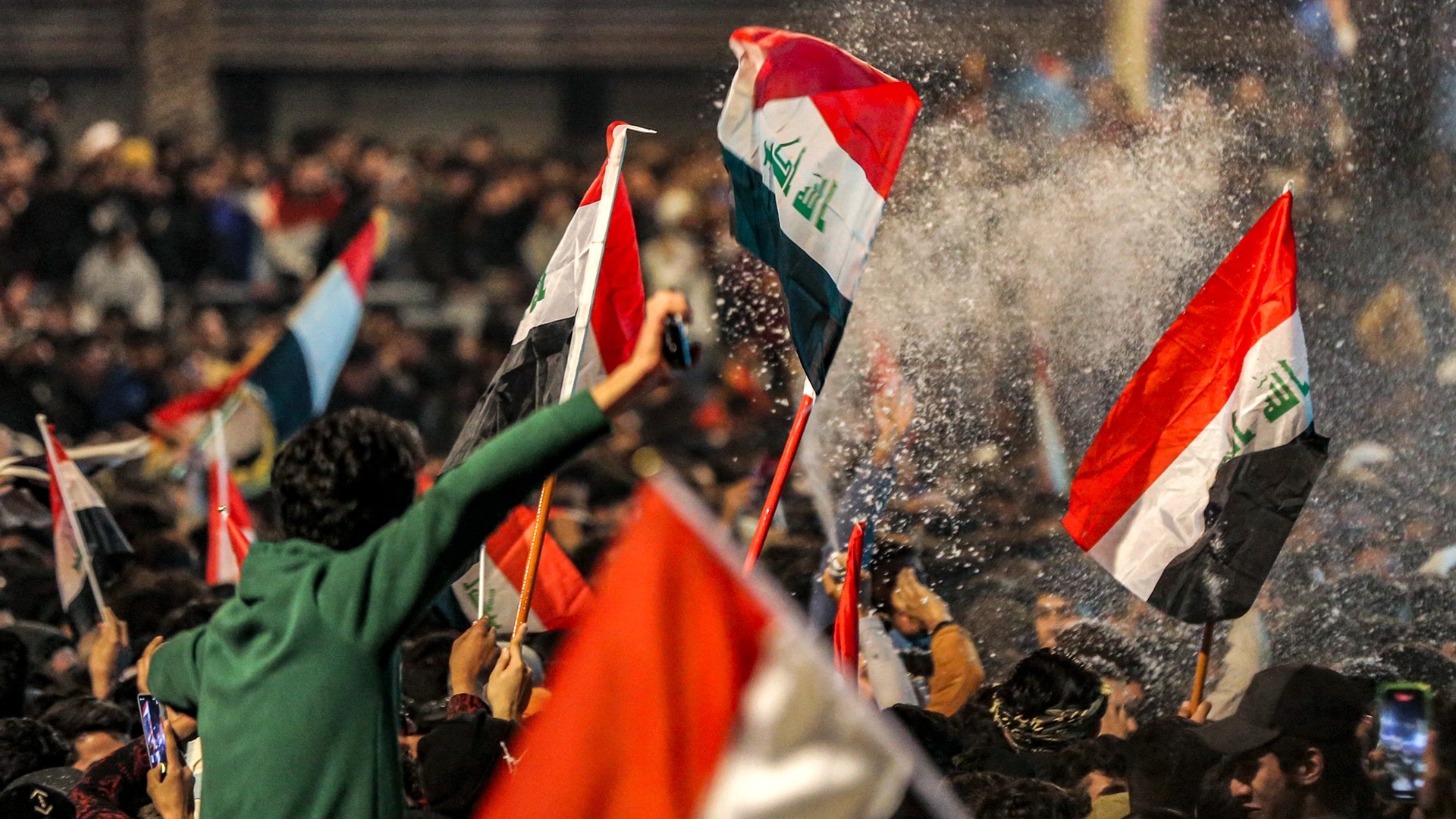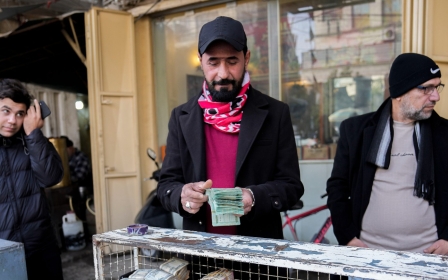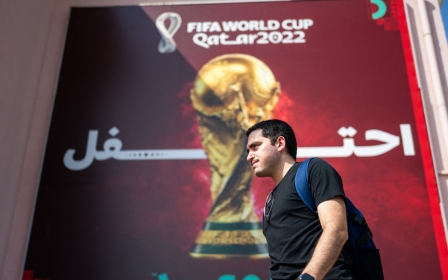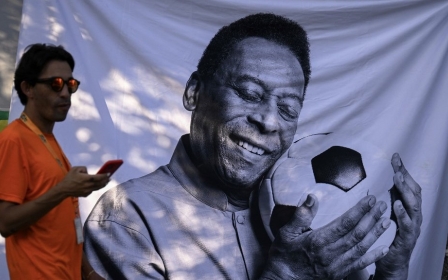Iraq celebrates Gulf Cup football win as it returns to hosting international tournaments

Iraq won the 25th Arabian Gulf Cup in dramatic circumstances on Thursday, bringing to a close the first major international tournament the country has hosted in 43 years.
A last-minute goal in extra time by defender Manaf Younis sealed a 3-2 victory in the final against Oman at Basra International Stadium, sparking jubilant scenes across Iraq.
“It is a historic event that Iraq won the Gulf Cup while the country has just healed from its wounds. We need this happiness that only football has succeeded in bringing to us,” Ahmed Sadiq, a 37-year-old Basra resident told Middle East Eye.
The southern city of Basra, Iraq’s third largest city, held the two-week tournament which featured Qatar, Saudi Arabia, Yemen, the United Arab Emirates, Oman, Bahrain, and Kuwait, as well as the hosts.
Iraq last held the Gulf Cup in 1979, an edition its national team also went on to win.
New MEE newsletter: Jerusalem Dispatch
Sign up to get the latest insights and analysis on Israel-Palestine, alongside Turkey Unpacked and other MEE newsletters
But since then, years of war and conflict have prevented international competitions from returning to the country.
Shortly after Saddam Hussein’s invasion of Kuwait in 1990, Iraq was suspended from the Gulf Cup and it lost the right to host matches over security concerns.
The subsequent US-led invasion of Iraq in 2003 and its destructive aftermath resulted in a decades-long wait for sports fans to witness international football on Iraqi shores.
“I hope Iraq can organise many such events to bring joy to Iraqis, and help Iraq return its position among other countries just as it was before,” said Sadiq.
The tournament was marred earlier on Thursday when four people died and dozens were injured during a crush outside the stadium prior to kick-off.
An eyewitness told MEE that many of those crowding outside the gates before the match were not ticket holders, which led to people pushing each other in attempts to enter.
“For the upcoming events, I hope that the Iraqi government makes more effort to organise how fans enter the stadium,” Basra resident Hayder Aziz, 21, told MEE.
“I am sorry that a couple of Iraqis were killed during the stampede yesterday, that should not be happening.”
Gulf tourists 'overwhelmed' by hospitality
The return of the tournament provided a long-awaited opportunity to display Iraqi hospitality to football-loving tourists from neighbouring countries.
“I made a pledge that if my country hosted the Gulf Cup, I would open my 'mudhif' and all houses I have to Gulf visitors arriving in Basra to watch the tournament,” Kadhim Majeed Al-Seraifi, a Basrawi tribal leader, told MEE.
A mudhif is a traditional house constructed from reeds in the swamps of southern Iraq, often used for ceremonial occasions.
“I offered a five-star service to the guests to make them feel comfortable,” Seraifi added. “I know that Gulf state people love the nature of Bedouin lifestyle; I provided many Arab-style tents with all the equipment needed for it.”
Basra governor Asaad al-Eidani announced earlier this month that visa fees had been waived for all tourists wishing to attend the Gulf Cup.
Kuwaiti resident Faisal al-Mubarek is visiting Iraq for the first time, thanks to the visa waiver.
“Visiting Iraq was a dream to me, especially the city of Basra. Today, I achieved that dream… and got to know its generous and kind people,” he told MEE.
Zahir al-Shahi, who travelled from Oman to cheer on his nation, was overwhelmed by the generosity and kindness of Basrawis, who spotted him through his Omani traditional dress.
“People did not let me pay in shops, restaurants did not charge me,” Shahi told MEE.
“My family and friends are asking me if this is Iraq or not; they were not expecting Basra to be like this.
They think it is a war-torn, unstable country and that there is no life here. I came here to show them the reality, away from propaganda.”
The 30-year-old Omani embarked on a tour of the Shatt al-Arab river, which joins the Euphrates and Tigris rivers, and posted about it to friends on social media.
“God willing there will be more activities to attract more people to visit this… rich city, rich with everything.”
Middle East Eye delivers independent and unrivalled coverage and analysis of the Middle East, North Africa and beyond. To learn more about republishing this content and the associated fees, please fill out this form. More about MEE can be found here.





